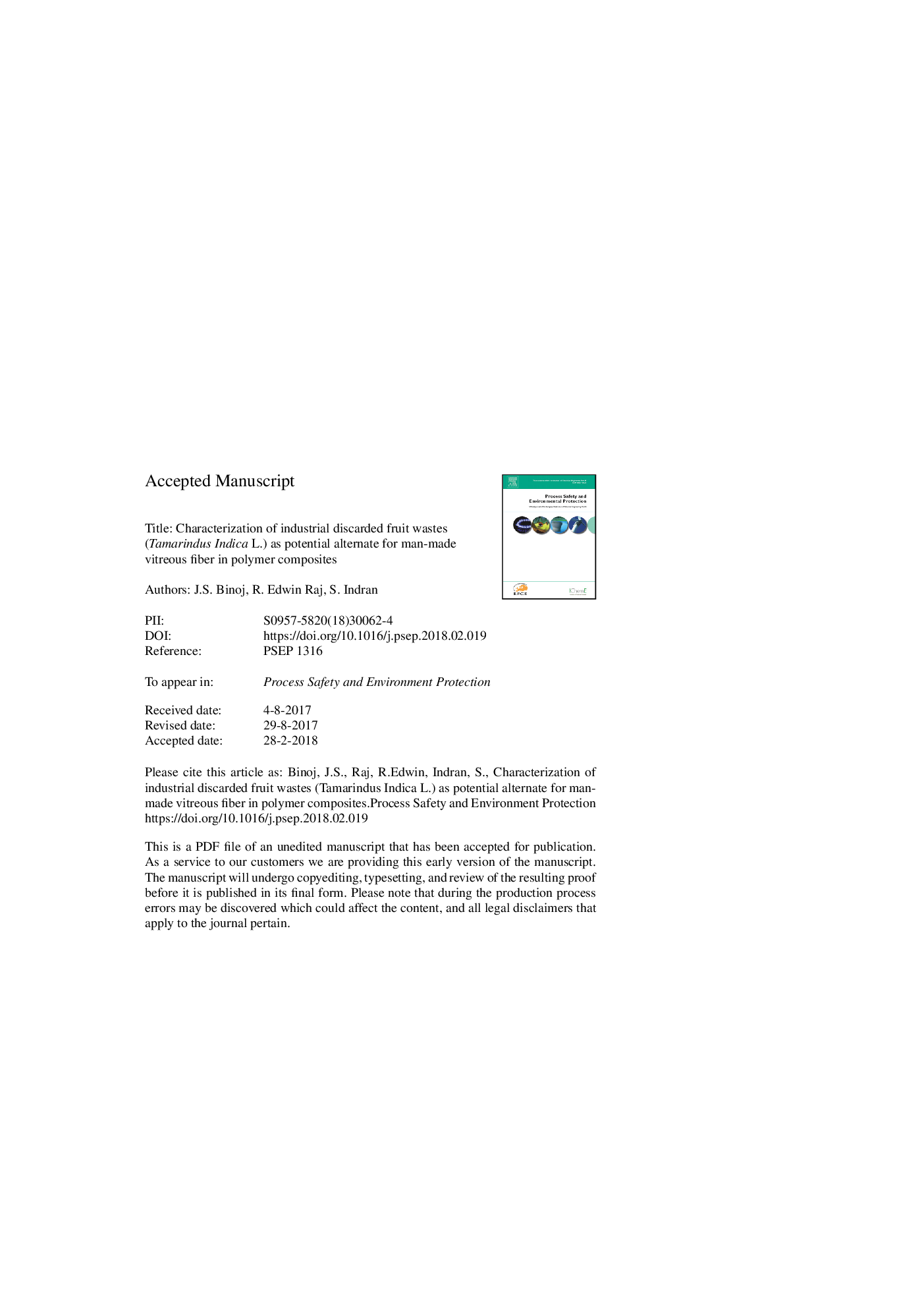| Article ID | Journal | Published Year | Pages | File Type |
|---|---|---|---|---|
| 6974129 | Process Safety and Environmental Protection | 2018 | 20 Pages |
Abstract
Environmental degradation and its effects on human health due to unprecedented use of synthetic fibers, have been heavily felt by the fabricating workers and by the common people in general. The search to develop high-performance materials using environmental friendly natural fibers, is to be encouraged and needs comprehensive characterization. In this paper, discarded and polluting agro waste from food processing industry, known as Tamarind Fruit Fiber (TFF) is tested for its potentiality as a reinforcement in polymer composite. The extracted fibers are subjected to anatomical, physical, mechanical, morphological, thermal and chemical examination. The low density (1.27 g/cm3) provides high strength (1137-1360 MPa), better thermal stability (238 °C) and superior bonding characteristics revealed by standard investigations promotes TFF as a promising natural fiber reinforcement for many composite applications. Low cost and competent performance can be achieved with this natural fiber when reinforced in polymer matrix.
Keywords
Related Topics
Physical Sciences and Engineering
Chemical Engineering
Chemical Health and Safety
Authors
J.âS. Binoj, R. Edwin Raj, S. Indran,
